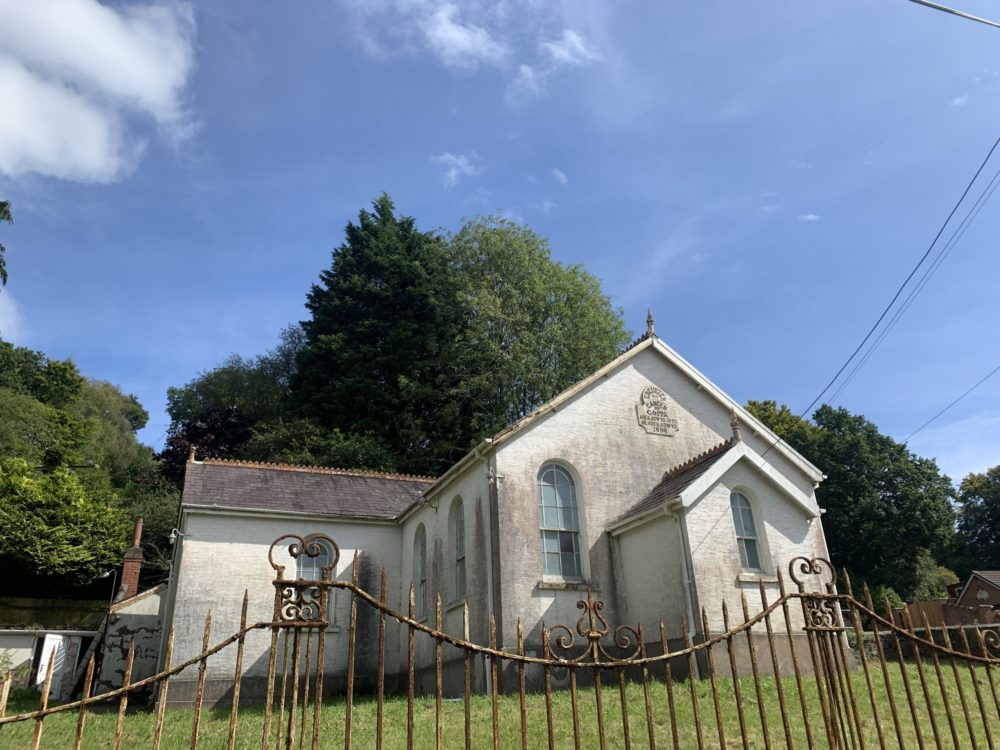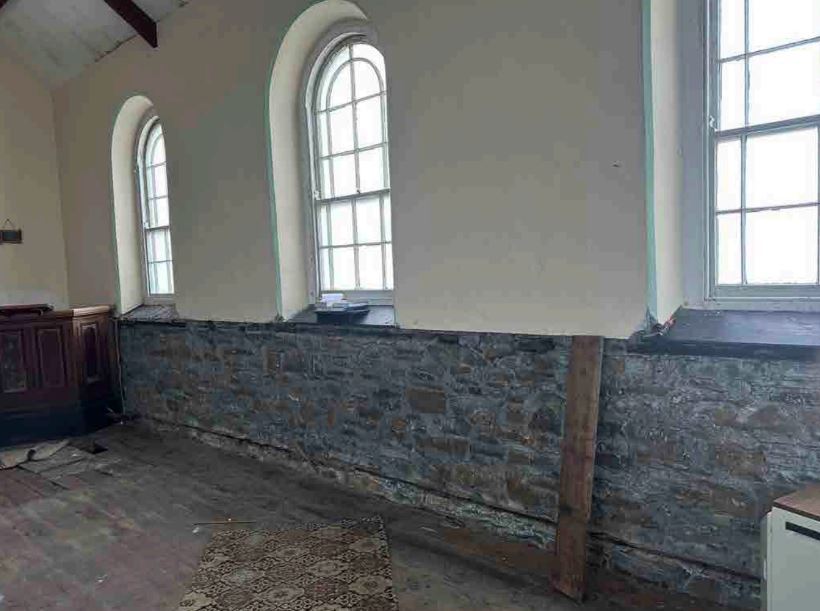Plans to convert disused chapel to home refused

Richard Youle, local democracy reporter
An empty chapel in the north of Swansea can’t be converted into a home for sale on the open market, a planning inspector said.
The inspector dismissed an appeal by developer Adam Morgan who wanted to create a four-bedroom house at Ebenezer Chapel, Garnswllt Road, near Pontarddulais.
Mr Morgan had appealed after his planning application to Swansea Council was rejected on the grounds that a community facility would be lost and that it hadn’t been demonstrated the chapel’s existing use was no longer viable.
Planning officers also said the creation of an open-market home in the countryside was unjustified and that it wasn’t clear if the chapel was structurally suitable for the work proposed.
They added that the planned work, featuring extensions, failed to respect the original character and integrity of the building. Sewage and road safety concerns were also raised.
‘Pastiche’
Architects on behalf of Mr Morgan argued that the chapel was structurally sound except for a rear annexe which would be demolished.
They also said the chapel had been empty for a long period indicating there was no local need for it.
They added that the extensions, while modern, would improve the look of the chapel from the side and that more traditional designs “would run the risk of being pastiche”.
Estate agents who handled the marketing of the chapel said it was put up for sale in June 2022 for £150,000 after being deemed surplus to requirements by the Presbyterian Church of Wales.
The agents said 18 viewings took place and 15 offers were made – all with a view to gaining an alternative planning use for the building.
A couple who live nearby said they supported Mr Morgan’s plans for the empty building, adding that it would otherwise become an eyesore and that “anything would be better than the current situation”.
Dismissed
The planning inspector, who was appointed by the Welsh Government, dismissed the appeal.
He said converting traditional buildings in the countryside had to be for certain uses which, in cases where residential use was sought, must be local needs affordable housing or housing for an agricultural or forestry worker where there was essential need.
He said it was understood that the chapel was surplus to requirements due to a diminishing congregation and difficulties maintaining it but he said no further details had been provided about how it was surplus to the needs of the community.
The chapel had been marketed for an appropriate period, said the inspector, but evidence hadn’t been provided about the alternative uses sought by other interested parties including whether any were for community facilities.

Unjustified
He also said the scale of the main extension proposed was unjustified. “The use of modern materials in the manner proposed diminishes the simple yet pleasant character of the chapel,” said his decision report.
“While the appellant contends that a more traditional extension runs the risk of being pastiche this does not justify the harm that would be caused by the proposed design.”
He said the plans would secure the future use of a traditional rural building but that there were strict controls on open market housing in the countryside.
“The economic benefits from residential use must be balanced against the wider benefits to the rural economy from a community or other business use and, in these circumstances, I find that the scheme’s benefits are clearly outweighed by the harms that have been identified,” he said.
Mr Morgan said in response to the decision: “We are considering our options given the advice from Swansea Council and PEDW (planning and environment decisions Wales) which includes converting the building for alternative use such as social housing.”
Support our Nation today
For the price of a cup of coffee a month you can help us create an independent, not-for-profit, national news service for the people of Wales, by the people of Wales.





